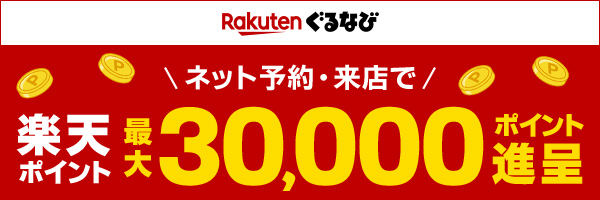ロンドンのクラブに安全を。クィアセキュリティ・ウェルフェアチーム「Safe Only Ltd」インタビュー/ Interview with Safe Only Ltd, the queer welfare and security team in London clubs
NeoL / 2023年6月26日 17時0分
ロンドンのクラブに安全を。クィアセキュリティ・ウェルフェアチーム「Safe Only Ltd」インタビュー/ Interview with Safe Only Ltd, the queer welfare and security team in London clubs
イギリス・ロンドンのクラブは危険な場所になることがある。性暴力、レイシズムやスパイキングの事件は後を立たないほか、クィアの人たちが標的にされる暴力も報告されている。2022年1月、東ロンドンのクィアパブで、ドアにいたセキュリティスタッフが顧客4人に暴力を振るい、1人入院する事態になった。クラブのセキュリティからのホモフォビック・トランスフォビックな言動、さらにクラブ内でのケアの欠如を前に、2022年にクィアコミュニティ主導のセキュリティ・ウェルフェアチーム「Safe Only Ltd」がセキュリティ・インダストリー・オーソリティー(SIA)認可され、設立された。Safe Onlyの「ウェルフェア」の実践、ナイトライフでのケアの労働と基盤について聞くために、Safe Only共同設立者のヤニス(Yannis Katsoris/写真右)にインタビューした。
→ in English
— ご自身のこと、そしてSafe Onlyを立ち上げるに至った経緯について教えてください。
ヤニス「ヤニスです。ダニ・シンガーと一緒にSafe Onlyを運営しています。2人で一緒に始めたのは、現状を少し変えたいと思ったからです。私たちは2人とも何年もパーティーに行っているパーティーアニマルでした。私はギリシャで育ったから毎年夏はパーティーに入り浸っていましたが、残念ながらギリシャはゲイシーンがあまり大きくなかったから、ロンドンに移り住んでこちらで夜遊びに出かけるようになりました。すごく楽しんでいましたが、クラブのセキュリティやスタッフが正しい言い方を知らなかったり、自分が助けが必要でも彼らがどうすればいいか知らなかったりして、自分は歓迎されていない、居心地が悪いと思わされることがあったんです。
私とダニは友達の家でのパーティーで出会いました。ロックダウン中だったのでかなりいけない話です。ロックダウンがやっと終わると、またクラブに出かけて、パーティーするのが楽しみで仕方ありませんでした。でも、長い間ナイトライフから遠ざかっていたあと、そのおかしいところが再び突然見えてきたんです。そのとき、これに対して何かする必要があるのではないかと考え始めました。
たまたま私たちは何回かドラァグショーで一緒にドアを担当していたのですが、人々は私たちが一緒にドアにいるのを気に入ってくれました。それで私たちは、これをやってみようと思ったんです。そこでセキュリティの免許を取りました。セキュリティ・スクールに通い、そこから、当初は考えていなかったウェルフェアが始まりました。セキュリティは必要ないけれど何らかの他の手助けがいる人を実際に助ける必要性がパーティーでは常にあるんです。長い間パーティーに通っていたから、プロモーターは私たちのことを知っていました。私たちに声をかけてくれ、初期からブッキングしてくれましたし、みんなも応援してくれてました。タイミングが良かったんだと思います」
— ロンドンには「Ask for Angela」や「Good Night Out Campaign」といった、性暴力防止に重点を置いた取り組みがすでにありますね。これらに加えてSafe Onlyを始めた具体的な動機は何だったのでしょうか?
ヤニス「Safe Onlyはクィアの声を拡大する必要性から生まれました。というのも、クィアの人たちはナイトライフの形成に貢献してきたのに、それが忘れ去られ、優先順位も変えられているように感じるからです。私たちは、クィアの人たちのためにそれを取り戻し、彼らが楽しい時間を過ごせるようにしたかったんです。たとえどんなことが起こったとしても、彼らが遊びに出るたときに、良い夜であることを確実にしたかった。少なくとも、誰かがあなたを助けてくれるように。それが私たちの原点で、今はいろんな方向に拡大しています」
— 先ほど「セキュリティ」と「ウェルフェア」の違いについて言及されました。説明していただけますか?
ヤニス「その違いは私たちにとって大きなものでした。私たちがセキュリティからスタートしたのは、そこが問題と思ったからです。もちろん問題のあるセキュリティの警備員はたくさんいますが、問題は今の実際の法律なのです。あなたがセキュリティであれば、イギリス政府からの一定のルールや法律を守らなければライセンスを失う可能性があります。政府は薬物乱用やナイトライフなどに対して非常に厳しい法律を課していますし、トランスの人たちにとっても現状はあまりよくありません。セキュリティをするだけでは、実際にすべての手助けを提供することはできないと気づきました。
ウェルフェアというのは比較的新しく作られた仕事です。まだ規制されておらず、できることに制限がありません。本質的に、“ウェルフェア”とは“ウェルフェアの人”のことです。“ウェルフェア担当者”とか“ウェルフェア・セキュリティ”とは言いたくない。ウェルフェアは、クラブに行くのが大好きで、パーティーにいるほとんどの人と友達であるような人のことで、誰かの帰宅の手助けが必要な時、少し気分が悪くて5分間だけリラックスしたい時、ただ誰かと適当におしゃべりしたいときに、そこにいる。多くの場合今まで遊びに出たことのない新しいクィアの人たちのためで、その人たちは仲間を探していいます。そんなとき会場であなたを出迎えて、『いいところだよ、出会いのお手伝いもするし、何かあったらここにいるよ』と言ってくれるウェルフェアの人がいるのは、とてもいいことだと思います。
ナイトライフですから、みんなアルコールだけ飲むわけではありません。ナイトライフの場合人々はドラッグも使うことに気づく必要があります。あなたがセキュリティであれば、法律に縛られているので、ドラッグを持ったまたは使用した人に危険があっても必ずしも与えたい手助けができるわけではありません。その人のドラッグを没収しなければ、あなたはライセンスを失うこともあるとだから。でも、あなたがウェルフェアであれば、どのドラッグを使ったか人々は正確に伝えることができますし、クラブから追い出す必要もない。ただ助けることができます。声をかけたり、手を握ったりするようなこと、そういう単純なことがパーティーで変化をもたらすのです」
— そのようなハームリダクションの原則(ドラッグの使用そのものを避けることよりも、ダメージを防ぐことと、 ドラッグを継続して使う当事者に焦点を当てる)があなたたちの仕事にどのように反映されているのか具体的に教えてください。
ヤニス「これは難しいところで、現在の法律では薬物の使用を促進することは許されていません。ハームリダクションを行うのであれば、薬物の摂取方法を指示することはできないのです。例えば、『G(GHB)ショットの注射器を使って、正しい量のGを取れるように確認してね、そうしないと大変になる』と言うことは許されていません。そうするとクラブはライセンスの問題で閉鎖させられる可能性があります。だから、例えば『もし誰かがGを使っていたとしたら、これを防ぐためにこうするべき』というような言い方が必要です。このような小さなことをナビゲートしなければならないし、必要な道具も揃えることができないから、注射器を渡せない。何をすればいいのかを正確に教えることもできない。
同じようなトリックとして、先ほども言ったように“ウェルフェア担当者”ではなく“ウェルフェアの人”と呼ぶことが非常に重要です。ウェルフェアの人は、本質的にはパーティーにいる人で、あなたが使っているドラッグがどんなものかやその方法を教えてくれるだけの人です。ただパーティーにいる人たちの間でお互いに話をするだけだから、何も問題ありません。そういう窓口は必要で、そういう選択肢があるのはいいことだと思います。プロモーターにもそのように伝えています。もちろん、誰かがドラッグの入った袋を取り出し、私たちがそれを見てしまったら、その人はもちろん出ていかなければならないか、少なくともドラッグをゴミ箱に捨てなければならない。しかし人は賢いです。追い出されるのが嫌ですから、言うことを聞いてくれますし、少し話せば、あなたの言っていることを理解してくれます」

— イベント会場やオーガナイザーとどのような関係で仕事をしていますか?
ヤニス「ほとんどのクライアントは私たちが何者か知っていて連絡をしてきます。私たちの小さなチームが雇われ、クラブのセキュリティやマネージャーと一緒に仕事をするのが一般的です。例えば、5人のセキュリティがいるとして、イベントの規模に応じて、私たちのチームから2人のセキュリティと会場内のウェルフェアを1、2人雇うでしょう。助けがいる人を見つけたら彼らが私たちに教えてくれて、そちらに向かいます。別のクィアの人が抱えている問題について彼らがよくわからない場合は、私たちのところにすぐきて、『この人はこういう助けが必要だけど、どう助ければいいかわからない』と伝えてくるような感じです。
何であれ正直であることが大切です。クラブに出向いてセキュリティと一緒に動く場合、その人たちが男性で、大きなエゴを持っていることがほとんどだから、相手のエゴを突くのではなく、そっとしておくことが多いです。向こうのセキュリティと打ち合わせをする時私たちが言うのは、『一応お伝えしますが、私たちはあなたたちに仕事のやり方を教えるためにここにいるわけではありません。あなた方の間違いを上司に伝えるためにここにいるわけではありません。私たちはただ、みなさんの手助けをするためにここにいます。もし、みなさんが対処法を知らなかったり不慣れなことがあれば、すぐ私たちに教えてください。そのために私たちはここにいます』。そういうことが状況をスムーズにするようです。誰にでも親切に接しますし、彼らが何か間違ったことをしたとしても、その場その時伝えるようなことはしません。その場合は一旦対処して、後でフィードバックや本来ならどうすればよかったかなどをメールで送ります。みんなの前で叱るとか、そういうことはしません。人はそのように学ぶものではないと思っています」
— ダンスフロアでは、反射ジャケットを着たあなたたちがとても目立ちますね。それは、空間の中で目につくようにという意図的な選択なのでしょうか?
ヤニス「クラブはとても暗いので、見つけやすいことは大事です。私たちのロゴもそう。みんなの記憶に残るような目立つ2色は何だろうと考えて、緑と紫を選びました。もし会場で方向を失っても、ピンクのジャケットは見えるからそれに向かっていけます。とても役に立っていますよ」
— ホームページで、Safe Onlyはスタッフに実質生活賃金を支払う(※ 2023年6月現在、23歳以上向けの最低賃金である全国生活賃金は10.42ポンド。この政府が制定する最低賃金とは異なり、さらに生活費の水準も考慮する18歳以上向け任意の賃金レベルである実質生活賃金はLiving Wage Foundationによると全国で10.90ポンド、ロンドンでは11.95ポンドと計算されている。しかしこれを不十分とし最低賃金15ポンドを呼びかける声もある。)と明記していますね。提供する労働やケアの条件について詳しく教えてください。
ヤニス「これは難しいところですね。私たちはスタッフに最低でも時給15ポンドを支払いたいと考えていて、これは現在ロンドンでは特別なことなんです。ナイトクラブのセキュリティの時給は大抵11ポンドです。ナイトクラブで12時間勤務して、耳をダメージする可能性や、あやうい状況をたくさん対処することを含めてです。基本的に会場にいるすべての人を守るのですが、会場を破壊する人たちからも会場を守らなければなりませんし、多くのことが求められます。それだけのことを時給11ポンドでやるのはありえない。ロンドンはとても物価が高いので、時給11ポンドで週に3回ほど働くとしたら、基本的生活を維持するためにあと2つか3つの仕事が必要になってくるでしょう。私たちにとって、それだけの仕事をこなし、すべての人の安全を守ることを期待されているなら、相応の報酬が必要です。体内時計を変えたりと夜間勤務は健康に悪いので、15ポンドでもベストとは言えません。でもプロモーターとの関係を維持したいので、ブッキングを継続させるために、今のところこの金額がベストです。
プロモーターや箱に請求する最低額は通常20ポンドです。15ポンドが労働者に支払われ、5ポンドが会社に残ります。その分、タクシー制度を利用することができます。私たちにはタクシー制度というのがあって、シフト後にタクシーを呼ぶことができるのですが、その代金を最大で20ポンドまで支給します。会社に残るお金でユニフォームを買ったり、チームミーティングではスナックを買ったり、いろいろなものを提供します。
現在、ロンドンでは私たちが働いているイベントが毎週末あるので、もっと多くのプロモーターをブッキングしたいです。私たちにとって、この輪にとどまり、この仕事を続けることはとても重要なこと。みんなが『このピンクの反射ジャケットが好き』『パーティーでこのジャケットを着てる人を見ると安全なんだって思える』と言ってくれます。自分たちのことを認めてくれて、パーティーに呼んでもらえるのはとても嬉しいです。 来場者たちがプロモーターのところに行って、『パーティーをもっと安全にするために何をしていますか? 私たちのお金が欲しいだけなんですか、それともパーティーで私たちに安全でいてほしいんですか?』と言ってくれることで、プロモーターの姿勢を変えつつあるんじゃないかでしょうか。1、2年前なら、この賃金を払ってくれる人はいなかったと思います。今ではこれを支払ってくれるパーティーや、昨年はしなかったのに今年は私たちをブッキングしてくれるパーティーも増えたし、この価格について再協議してくれるようにもなりました。
このことは、サービスが良く、必要とされ、変化をもたらすものであれば、予算を捻出できることを示しています。以前であれば、セキュリティやウェルフェアは一番最後に考えることでした。そのための予算は組まれないからごくわずかのお金が支払われるだけで、その結果、自分たちが受けるサービスに対して不満を持つようになる。なぜならそれはすべて安く外部委託された人たちによるサービスだから。反面、私たちのスタッフは喜んで職場に行き、最高の自分たちを発揮しています。彼らは然るべき報酬を受け取っていますし、大切にされていると感じているから。最終的には、スタッフにもっと給料を払いたいと考えていますが、今のところはこれでうまくいっています」
— クラブ内のケアはオーガナイザーや会場、プロモーターの責任であって、他所に外部委託すべきものではないという考えについてはどう思いますか? あるいは、特にクィアなウェルフェアチームであるSafe Onlyに労働をアウトソースすることで、会場やオーガナイザーは自分たちのやることを根本的に変えないと思う人もいるかもしれません。
ヤニス「それは今私たちも探っているところです。というのも、多くのクラブや箱が、私たちをブッキングすればそれで十分だと考えていることがわかったからです。私たちの名前をパーティーの横につけて、『Safe Onlyと提携しているので、安心してご来場ください」と言うわけです。しかし、時にケアはそれを越えて差し伸べられるものです。ただ私たちのひとりがパーティーにいて、ベストを尽くしているわけではありません。それに付随するすべてのことも考えなければなりません。 会場で働く人々、例えばバーテンや会場の清掃員のことも気にかけていますか? というのも、私たちがシフトに入ると、自分たちの労働条件について不満を言う会場のスタッフがほとんどなんです。
今これをどうするべきか議論しています。私たちは見せびらかすための形だけの存在ではなく、実際に現在のシステムの構造を変えなければならない。それをプロモーターに伝え、変化を起こす手助けになってもらう必要があります。最終的には、組合を作れば、自分たちを代表して薬物乱用に関する法律などを変えることができるかもしれませんが、誰もそんなことには関心がないようです。
私たちは、ただパーティーを開くだけでなく、他にどうやってコミュニティのためになることができるかを考えてみよう、と人々に伝えています。すべてのクィアの人々のためにパーティーを開くのは素晴らしいことです。しかし、会場を出たあとの彼らのことを気にかけているのか、と問いたいのです。
私たちチームとしての夢は、いずれは自分たちのスペースを借りられるだけの資金を手に入れ、毎週火曜日はみんなが来れて、オフィスでくつろいだり、一緒に映画を観たり、おしゃべりしたり、素晴らしい週末を過ごした後のひとときを過ごしてもらうことです。人生で最高の週末を過ごしたのに、翌日には自分の部屋でひとりぼっちになってしまうのはとても寂しいですから。それはすごく大変で、ただ同じ部屋にいてくれる人が必要かもしれない。だから夢は、いつかロンドンのすべてのクィアコミュニティにそのスペースを提供することです。Safe Onlyのオフィスとして機能し、私たちがメールに返信している間オフィスに座って、元気にしてるか教えてくれたりできるように」

— メンバーへのトレーニングはあるのか、スキル配分はどうなっているのかが気になりました。初めて皆さんの一人、アレックスと会ったのは、クラブで連絡が取れなくなった友達を探している時でした。アレックスは、ドアにいるセキュリティに、友人の性自認を決めつけない形で私の友人のことを説明してくれ、ただ背の高さなどの見た目を描写していて、それが当時の自分にはとても助かりました。人のアイデンティティを決めつけないというのはクィアコミュニティではある程度当然のことかもしれませんが、それ以外の、特定のスキルが必要なことについては、どのようにメンバーをトレーニングしているのでしょう?
ヤニス「第一に、私たちはクィアの人しか雇いません。これはすでに大きなアドバンテージです。もしあなたがクィアなら、他のクィアの人たちと交流したことがあるはずです。現在の問題が何であるかを知っているでしょうから、それは常に大きな助けになります。このことは明らかに私たちのチームにとって大きなボーナスポイントです。私たちのウェルフェアの人の多くは、すでに医療知識を持っています。精神保健福祉士や看護師だったり、自閉症を持った人や高齢者の介護をしてきた人たちです。背景となる知識はすでに持っていて、同時に全員がパーティーピープルです。
しかし、研修期間もあります。新しいメンバーと会い、私たちがどのように仕事をしたいのか、どういう状況なのか、私たちのビジョンは何かを正確に伝えます。そしてその人たちと話して、精神的にどの段階にいるのかを把握するのです。現在の私たちと同じステージにいるのか、あるいは、シフトの中で何度か私たちの後をシャドーイングをすれば、私たちと同じSafe Onlyのサービスを提供することができるのか。彼らの多くはセキュリティ・スクールに行っていたわけではありません。ですがウェルフェアだけであれば、ピア・ツー・ピアに近いです。
クィアであったとして、例えばあなたがゲイであるかといってトランスの人々が受ける問題に必ずしも影響を受けるとは限りません。彼らが現在抱えている問題を知っているとは限らない。だから実際の経験や伝えてもらうことことから学びます。シャドーイングはシフト上とても重要です。その人がクライアントとどのように接するか、どの程度の知識を持ち、どのようなケアを提供できるかを確認できるからです。
その後にパーティーに送り出します。人によって自分が働きたいパーティーだけを選んで参加する場合もあります。そのコミュニティのことを知っていて、そこでなら安心して最高のケアを提供できると思っているからです」
— Safe Onlyのインスタグラムの投稿の中には、ニューロダイバージェント(※ADHD、ASDなどを含む神経多様性)な来場者にも来てもらえるようなスペースを作りたいというものがありましたね。彼らは具体的にどんな問題に直面するのでしょうか。
ヤニス「多くの場合、クラブといえば、いかに最高のサウンドシステムがあるかや、どうすればみんなにクールに見えるかということばかり考えられているのではないでしょうか。そのため、アクセシビリティのニーズがある人たち、大きな音や特定の照明に敏感な人などが見過ごされてしまうのです。なぜなら、残念ながら、大多数の人はアクセシビリティに問題がなく、こうした敏感さがないからです。しかし、少数派の人たちは、それでも遊びに出たいし、楽しい時間を過ごしたいと思っています。
だから私たちは、プロモーターやクラブのオーナーと、この人たちに対してどういうことをしているのか聞くようにしています。『この人たちはあなたのクラブに来て、お金を払っています。彼らのためにどういう改善をしていますか?」それで、5分でもいいから音楽を聴かずに座って落ち着けるような小さなスペースをいつも用意するようにしています。また、車椅子や松葉杖をついている人がクラブに来れるように、アクセシブルな場所を用意するようにしています。会場によってはこのスペースすらありません。ロンドンの地下鉄でさえ、車いすの人にとってはアクセシブルではないんですから。
このような人たちを見過ごし、忘れてしまうのはとても簡単です。でも、この人たちは私たちのコミュニティの一員なのです。音に敏感で、でもクラブに行きたい人たちのために何をしているのか、常に考えなければなりません。クラブに耳栓はあるのかなど、クラブをより安全な場所にするために必要なものを、常に思い起こさせる必要があるのです」

—今のチームメンバーはどんな人たちですか? どのくらいの規模でバックグラウンドはどのようなものでしょうか?
ヤニス「私たちの元にはウェルフェアチームが20人、セキュリティチームが10人、そして医療補助のメディックが4人います。彼らはちゃんとした医者で、クラブに行って助けてくれるゲイドクターです(笑)。非常に多様なメンバーがいて、POC(有色人種)の人たちがたくさんいます。南アジア、ヨーロッパの国々や、イギリス出身の人たちもいます。でも、私たちのクィアコミュニティはそれ自体が多様なのです。みんな故郷を離れてクィアシーンを見つけるためにロンドンに来ているようなものです。私たちはできるだけさまざまな国から人を雇うようにしています。例えば、ロンドンにはナイジェリアの人がたくさんいて、その中にもクィアの人たちがいます。もしくはアフリカの他の国から来てイシューに繋がっているチームメンバーがいますし、私たちのやり方が間違っているかどうかを教えてくれるかもしれません。私たちはそのような意見に耳を傾ける必要があると思っていて、それを受け入れています。なぜなら、私もダニも白人でヨーロッパ人だからです。私たちは神様じゃないし、間違いを犯すとわかっているので、チームのメンバーが教えてくれることを望んでいます。
でも、バックグラウンドはみんなクィアです。彼らは皆、インスタグラムを通じて、あるいはパーティーで私たちを見かけ、一緒に働いてもいい? と私たちのところに来てくれた人たちです。本当にエキサイティングなことです。私たちはトランスコミュニティに愛着があって、チームにはできるだけ多くのトランスの人たちがいるように心がけています。クラッパム(南ロンドン)のゲイもいれば、東ロンドンのクィアもいる。トランスのドールもいる。みんなチームの一員です」
—トランスの人たちが直面するいろいろな問題について少し説明していただけますか?
ヤニス「イングランドでは今トランスの人たちへの差別はひどいです。日常的に起こっていて、日毎に悪化しているように思えます。私たちにできることは、トランスの人たちができるだけ安全でいられるようにすることです。それは彼らに仕事を与えることでもあります。だから主にトランスの人がいるチームを作れたのは素晴らしかった。彼らはみんな、以前の職場でトランスであることを理由に差別されたり、100パーセント自分らしさを出せなかったりという問題を抱え、私たちのところにやってきました。彼らは皆、居心地がよく、自分らしくいられると感じられるからこそ、私たちのところに来ているのです。悩みを打ち明けられたら、私たちはそれに耳を傾け、悩みを解決するための手助けをしようとします。私のビジネスパートナーのダニもトランスのアンブレラに入る人です。私のハウスメイトはみんなトランスですし、とても身近なコミュニティです。だから私たちは、そのためにできる限りのことをしようと努力しています」
—多くのクィアの人たち、特にトランスの人たちは、入り口でバウンサーを通ってセキュリティチェックされ、身分証明書を提示しなければならないとき、ネガティブな経験をたくさんしているはずです。クィアのセキュリティ・メンバーがいることで、彼らはより楽に感じるのでしょうか? それとも、セキュリティは信用したくないのでしょうか?
ヤニス「私たちは疑いをかけたりしません。違う名前のIDや、写真も違っていたりするけど、この人はトランスで、IDを偽造して入ってきたのではないのだということはわかります。『写真に写っているのはあなたですか?」とは聞きません。『そうだけど、それは10年前の私で、その時の私は違う見た目をしてた』なんていうことを、その人に考えさせてくない。その質問は私たちはしたくない。事実を認めます。だから笑顔で『楽しんでいってね』と声をかけるんです。するとその人はもう気分がよくなるし、クラブに入る前から安心するんです。『リラックスしていいんだ。この人たちはわかってくれてる。私は大丈夫。ここで楽しい時間を過ごせる』と思える。そんな小さなことが、ある人たちにとっては大きな違いなのです」
—近い将来チームで実現したいと思っていることは何ですか?
ヤニス「私たちが持っていた長期的な目標は全て、ほぼ達成しました。例えば、私たちが参加したいと思ったすべてのパーティーで、やっとセキュリティやウェルフェアとして参加できました。近い夢は、もっと大きなセキュリティチームを持つことでしょう。クィアの人だけのセキュリティチームを組むことが難しいのです。だから当面の夢のひとつは、資金を調達して、免許料を払えるようにすること。セキュリティライセンスの取得にはとてもお金がかかります。講習が500ポンド、免許をとるのに250ポンドだから、クィアの人たちにとっては通常大金になります。クィアの人たちにお金持ちはあまりいないですから。理想的には、大きなチームのためにその費用を支払うことができるようになって、10人、20人を1週間セキュリティー・スクールに送り、私たちのチームに参加してもらう。そうすれば、箱側のセキュリティと協力するのではなく、クラブを完全にテイクオーバーすることができるようになります。私たちのセキュリティだけでよくなれば、大きな違いが生まれるでしょう。
他のセキュリティの人と仕事をするときに問題になるのは、彼らのミスをより良くする後始末をしなければならないことです。だから、いつかクラブを丸ごと、しかも自分のチームのためにテイクオーバーできるようになりたいですね。これは夢のような話ですが、実現はしつつあります」
—最後に、あなたにとってクラブスペースとは何ですか? どんなクラブ空間を作りたい、どんなクラブ空間に行きたいと考えていますか?
ヤニス「私にとって、クラブは完全な自由。長年のパーティー好きですが、最近は行かないパーティーも多くなってきました。私が感じたい完全な自由を与えてくれないからです。私は、人々がお互いを認め合い、人々がさまざまな状況にあることを認め合い、ハームリダクションが核となる場所であり、すべてのドラッグユーザーのために安全な場所を作り、ダークルームでセックスをしたいすべての人々のために安全なまさにユートピアな場所を求めています」
※東京のクラブの文脈でハームリダクションを取り上げた例として、2021年にクラブイベント「ether」が主催したオープンディスカッションがある。また東京でコミュニティプロジェクトとしてのセーフティーチームを初めて導入した「WAIFU」では、オーガナイザーだけでなくスペースを安全にしたいと思っている来場者にもSECURITYステッカーを渡し、何かあればそれを身につけている人に声をかけることができる。
Text Yoshiyuki Ishikawa(https://www.instagram.com/yoshiyukiiishikawa/)
Photos Safe Only Ltd
Safe Only Ltd
Home https://www.safeonly.co.uk/
Instagram https://www.instagram.com/safeonlyltd/

Clubs in London can turn into dangerous places. Incidents of sexual assaults, racism and spiking abound and there have been reports of targeted violence against queer people. In January 2022, a bouncer at an East London queer pub assaulted four party-goers, leaving one hospitalised. In the face of homophobic and transphobic behaviour by the venues and security staff, as well as the lack of care within the club space, Safe Only Ltd, a queer community-led security and welfare team, was established in 2022, authorised by Security Industry Authority (SIA). I talked to Yannis Katsoris, the co-founder of Safe Only, to hear about their practice of welfare, labour and infrastructure of care in nightlife, and how they envision the politics of club events.
—Can you tell me a little bit about yourself, your background, and how you came to start Safe Only?
Yannis: I’m Yannis. I run Safe Only with Dani Singer. Two of us started it together out of the need to make a bit of difference. Both of us were partying for years, we’ve both been party animals. I grew up in Greece, so every summer was party-party, then I moved to London because Greece was not very gay, unfortunately. Then I started going out to the nightlife in London. Even though I was having a great time, there were still times when I had been made to feel unwelcome or uncomfortable by either security guards or staff within the venue who didn’t know how to say the right thing or how to help if I was in need.
Dani and I actually met while partying at our friend’s house, which is quite naughty because we met during the lockdown. When lockdown finally finished, we went out to the clubs again and were so excited to go party. But we saw what was wrong with that again all of a sudden, after being away from nightlife for so long. That’s when we started essentially thinking maybe we need to do something about this.
It happened that we worked the door together at a couple of drag shows, and people loved us on the door together. We thought, you know what, let’s do this. So we took our security licence. We went to security school, and from there the welfare started, which we hadn’t thought about to start off with. The need to actually help people that don’t need security, but need some sort of other help, is always there at parties.
Because we were all partying for so long, the people, the promoters, knew us. So they came to us, and we had bookings from the very beginning. People were very supportive and I think the timing was really good for us.
– In London, there are already some initiatives with a focus on preventing sexual assault such as Ask for Angela or Good Night Out campaign. What was the specific motive for you to start Safe Only in addition to these?
Yannis: Safe Only came out of the need to amplify queer voices, because we feel that queer people have helped shape nightlife but that is sort of forgotten and priorities are different. We wanted to bring something back for the queer people and make sure that they are having a good time – when they do go out, it is a good night, even if it’s like, dramas happen. At least someone is there to help you with that. That’s where we came from and now it’s expanded to all sorts.
—You said earlier about the difference between security and welfare. Can you explain it to me?
Yannis: This is the big thing that we had. We started as security because we thought that was the problem. Yes, of course, there are many problematic security guards, but the problem is the actual current laws. When you are a security guard, you have to follow certain rules and laws from the government, otherwise, you may lose your licence. The government has very strict laws on drug abuse and nightlife. It’s also not very great for trans people at the moment. We realised that just by being the security, we can’t actually provide all the help we want.
Welfare is an invented job. It hasn’t been going around for long. It’s not regulated yet. There are no limitations to what you can do. Essentially, a ‘welfare’ is a ‘welfare person’. We don’t like to say ‘welfare officer’ or ‘welfare security’ – it’s just a ‘welfare person’ because it’s a party person. It’s someone that loves partying, is friends with most of the people at parties, and is there to either help you if you need help getting home, if you’re feeling a bit sick and you just need five minutes to relax, or if you just want to have a random chat with someone. A lot of the time, it is for new queer people that have never been out before, and they’re looking for their people. And having that welfare person there to even welcome you in the venue and tell you like, ‘Oh, you know it’s great, I can help you meet some people, or I’m here if you need anything,’ seems to be going down very well.
It’s nightlife. People don’t only drink alcohol. We have to realise that people like to take drugs as well in nightlife settings. When you are security, because you are bound by the law, even if those who have or used drugs are in harmful situations, you can’t necessarily give them the help that you want to give them. If someone is watching you and you don’t take that person’s drugs, you could lose your licence. But when you are welfare, people can tell you exactly what they’ve taken and you don’t have to kick them out of the club. You can just help them. You can just talk to them or hold their hand. It’s simple things like that that really make a difference in the night.
—Can you tell me how the principle of harm reduction (which focuses on reducing the negative consequences associated with drug use as well as on the wellbeing of those who continue to use drugs, rather than the abstinence of drug use per se) is present in your work?
Yannis: This is where it becomes tricky because, with the current law, you’re not allowed to promote drug use. If you are doing harm reduction, you can’t tell people how to take their drugs. For example, if you go and say to someone, ‘you must take a syringe for your G shot to make sure that you know you’re taking the right amount of G, otherwise you’ll have an issue’, that is something that you’re not allowed to say, and the club could then be shut down for licensing issues. So you have to do it in a way, for example, ‘if someone was taking G, they would have to use this to make sure that this doesn’t happen.’ You have to navigate these small things. You can’t have the tools that you need most of the time, so you can’t give people syringes. You can’t tell them what they exactly need to do.
That’s where the trick is. As I said, it’s very important to call them ‘welfare people’ and not ‘welfare officers’, because they’re essentially just a person at the party whom you’re telling what drugs you’re taking, and they’re telling you how to take them. There's nothing wrong with that. It’s just people in the party just talking with each other. That’s the window that we need and it’s good to have that option. That’s what we usually tell promoters as well. Obviously, if someone takes a bag of drugs out and we’ve seen it, then, of course, that person has to leave, or at least take the drugs into the bin. But people are clever. They don’t want to be kicked out, so they’ll work with you, little chats, and they’ll understand what you’re saying.

—How would you describe the relationship you make with venues and organisers while working at an event?
Yannis: Most of our customers have come to us already knowing who we are. They usually hire a small team of us and we work along with the club’s security and management. If they have a team of five security, maybe they’ll hire two security from our team and a welfare person or two inside the venue, depending on how big the event is. They tell us if they see someone that needs help, and we’ll go to them. Or if they’re not very sure about an issue that another queer person has, they’ll come straight to us, like ‘This person needs this sort of help, but we’re not sure how to provide it.’
It’s all down to being honest. Usually when we go into a club and work with security, because they are men, and most of the time they have big egos, we tend to stroke their egos instead of poke. So when we have a meeting with them, we say, ‘Just so you know, we're not here to tell you how to do your job. We’re not here to tell your boss what you're doing wrong. We’re just here to help you. If there’s anything that you do not know the answer to, you can come straight to us, if it’s something that you don’t know about. That’s why we’re here’. That seems to smooth this situation. We just treat everyone nicely. If they’re doing something wrong, we won’t tell them there and then. We’ll be like, maybe we can deal with this, and then we will send an email with some feedback and what they could have done differently. We won’t tell them off right in front of everyone. We don’t think that people learn like that.
—I noticed that you guys are really visible on the dancefloor, wearing high-vis jackets. Is it your deliberate choice to try to be visible within the space?
Yannis: Yes, it’s all about being visible because it’s so dark in the club. It comes down to our logo: what are the 2 colours that people will remember, something that sticks out? We chose green and purple.. Even if they can’t see where they’re going, they can see the pink jacket. So they just come to the jacket. It helps a lot.
—Your website mentions that your staff are paid the real living wage [As of June 2023, the national living wage, the minimum wage for 23 and over, is £10.42. Different from this statutory amount set by the government, the real living wage, a voluntary level of wage for 18 and over that considers the cost of living, is calculated as £10.90 across the UK and £11.95 in London by Living Wage Foundation. Some however say it is still not enough and are calling for £15 minimum wage]. Could you elaborate on the terms of labour and care that you provide?
Yannis: This is a tricky one because we’d like to pay our staff a minimum of £15 per hour, which for London at the moment is quite significant. Usually, a security guard in a nightclub setting will probably get £11 an hour. And that is working 12h shifts in a nightclub with potential damage to your ears, dealing with a lot of vulnerable situations. Essentially, you’re protecting all the people in the venue but you also have to protect the venue from people destroying it. There’s a lot to it and you’re expected to do that just for £11 an hour, which to us is ridiculous. London is very expensive. If you’re just making £11 an hour, maybe just 3 times a week, you are going to need 2 or 3 more jobs to maintain your basic living. For us, if you’re expected to do all that work and keep all these people safe, you need to be paid the right amount of money. Even 15 pounds is not the best, because nighttime work is bad for your health, changing your body clock and everything. But it’s the best that we can afford at the moment and make sure that we keep having bookings because we want to keep the relationships we have with the promoters.
The minimum that we’ll charge promoters or venues is usually £20. The £15 goes to the worker, and £5 stays in the company. And that usually helps with taxi schemes. We have a taxi scheme where people can buy a taxi after their shift, and we can pay up to £20 for it. We buy uniforms and when we have a team meeting we’ll buy snacks and we’ll provide stuff for people from the money that stays in the company.
We want to book more promoters because, currently, we have events every weekend in London where we have a team of people working. It’s very important for us that we stay with these circles and continue this work. Now people say, ‘Oh, I love these pink, high-vis jackets’, ‘Every time I see them in this jacket at a party I feel like I’m safe.’ For us, it is amazing that people recognize who we are and want us at the parties. They go to the promoters and ask them ‘What are you doing to make your party safer? Do you just want our money, or do you want us to be safe at your party?’ It’s changing a bit of the attitude. A year or 2 ago, people would not be willing to pay these wages. We are now seeing parties that are paying them. Parties that maybe didn’t book us last year are now coming back to us, rediscussing these prices.
It shows that if the service is good, needed, and making a difference, people can suddenly find the budget for us. Whereas before, security and welfare was the last thought. People do not budget for it. So they pay the least money that they can, but then they complain about the service they receive. Because it’s all outsourced people. On the other hand, our workers are happy to go to work and give their best selves, because they’re getting paid what they should be paid and feel valued. Eventually, we want to pay our workers more. But for the time being it works.
—What would you say to the idea that care within the club is the responsibility of the organisers, venues, or promoters, rather than something that should be outsourced to other places? Or maybe that, because they outsource the labour to you as a specifically queer welfare team, they don’t fundamentally change what they do. What do you think?
Yannis: That’s something we’re navigating now, because we found that a lot of clubs and venues thought that, just by booking us, that’s enough. So they put our name next to their party like we have Safe Only so you’ll be in safe hands. But sometimes care extends beyond that. It’s not just we have one person at the party, and we’re doing the best we can. It’s everything that goes with it. Do you care about the people that work in your venue, even the bartenders, even the cleaners of the venues? Because most of the time when we go on shift, it’s the actual staff of the venue who come to us and complain about their working conditions.
We’re discussing how we can navigate this. How do we tell promoters that we’re not just a token to show and that you actually have to change the structure of the current system? You have to help us make this change. There’s more to be changed. Eventually, if we make a union, we can all represent ourselves and maybe try and change some laws around drug abuse or all that, but no one seems to care about that.
We’re telling people that people can try and think about how else they can provide for the community rather than just throwing a party. It’s great to throw a party for all the queer people. But we want to ask, do you care about them when they leave the venue?
As a team, the dream is eventually to have enough money to rent our own space and then people can come every Tuesday to just come and chill in the office and maybe watch a film with us, or just chat, for people to have that point after a great weekend. You know it can be very lonely to have the best weekend of your life and to be all by yourself the next day in your flat. And it’s so hard, you need someone to just maybe be in the same room with you. So the dream is, to one day offer that space to all the queer community in London. It would work as a Safe Only office, and people could come and chill with us, sit in our office while we respond to emails and tell us how your day’s going.

—I was wondering whether you have training for the members of your group and how you distribute the skill set. The first time I saw one of you, Alex, I was looking for my friend at a club who I thought went missing. Alex was describing my friend to the security guard at the door in a way that didn't assume the gender of my friend: just talking about the presentation, like how tall, etc, which was really helpful for me at the time. Not assuming people’s identity might come naturally to queer community, but how do you train your members on other things that require certain skills?
Yannis: The number one thing is that we’d only like to hire queer people. That is a big advantage already. If you are queer, you have most likely interacted with other queer people. You know what the current issues are so that always helps a lot. That obviously is a big bonus for our team. A lot of our welfare people already have medical knowledge. They’re either mental health nurses or nurses, or they’ve been caring for people with autism or elderly people. They have some background knowledge already, and they all are party people.
But we have our induction days. We meet up with new team members and we tell them exactly how we like to work, how we see it going, and what our vision is. And we have chats with them and get to know where they are at, mentally, at their stage. Are they at the same stage that we are at the moment? Or do they need to maybe shadow us a few times in a shift, and then they can provide the same service, that same Safe Only one? So it’s all peer-to-peer conversations, mainly. A lot of them haven’t gone to security school. But if you are just welfare, it is more like peer-to-peer. Because you can still be queer and… For example, if you are gay you are not necessarily affected by a trans person’s issues. You might not necessarily know the current issues they have. That’s something one learns from the actual experience as well or from being told. Shadowing is very important on shift, because we get to see how they interact with customers, and we see what level of knowledge they are at and what care they can provide.
Then we distribute them to the party. Some people have selective parties that they only want to work at because they know that community and that’s where they feel comfortable to provide the best care they can.
—Some of the Instagram posts from Safe Only said you want to make space for people who are neurodivergent, making sure that they can also come to the party. What specific challenges do they have?
Yannis: A lot of the time, when you think of a club, all they care about is how to have the best sound system or how to look cool. Because of that, people with accessibility needs and those who are more sensitive to loud noises or set different lighting are overlooked. It’s because, unfortunately, the majority of people do not have access issues or do not have these sensitivities. But they still want to go out and still want to have a good time.
We try to have conversations with the promoters and the club owners and ask them what they do about these people. Because these people still come to your club and pay you money. How do you make it better for them? So we always make sure to have a little space so that people can sit without music even for 5 min, just to calm themselves. We try to make sure that there are access points for people with wheelchairs or on crutches, so they can still come to the club. Because some venues don’t even have this. I mean, not even the London Underground is accessible to people with wheelchairs.
It’s so easy to overlook and forget these people. But they are part of our community. We have to constantly remind ourselves: what are you doing for people that are sensitive to the sound, but still want to come out and have clubs? Do you have earplugs in your club? It’s just reminding people all the time what they need to have in their clubs to make it safer.

—How would you describe your team members right now? How big is the team? What are their backgrounds like?
Yannis: We have a welfare team of maybe 20 people, a security team of 10 people, and we also have 4 medics, medical assistants. They are proper doctors, gay doctors that go to clubs and help (laughs). We have a very diverse group and we have a lot of POC people in our team. We have South Asian. We have different European countries and obviously people from England. But our queer community is diverse by itself. Everyone comes to London because they’ve left their hometown to find the queer scene.
We make sure to hire people from as many different countries as possible. There are so many people in London, for example, Nigeria, and these people are also queer. We have team members that are from around or maybe from another different country in Africa who relate to the issues and maybe can tell us if we’re doing it wrong. I think we need to listen and we are open to that. We want our team members to tell us if we get it wrong because Dani and I are both White and European. We’re not playing god and know that we’re going to make mistakes.
But their backgrounds, they’re all queer. They all came to us, either through Instagram or seeing us at a party, and asked us how they can work with us. It’s really exciting. We do have a soft spot for our trans community. So we try to have as many trans people as possible in our team. We have our Clapham gays, East London queers, and trans dolls. Everyone is part of the team.
—Can you explain a little about the problems that trans people face?
Yannis: It’s terrible how trans people are discriminated against right now in England. It happens on a daily basis and seems to be getting worse and worse every day. The only thing that we can do is make sure that these trans people are as safe as possible. So it’s by giving them a job. This is why we find it superb that we created a team of mainly trans people because they all came to us because of issues they’ve had at their previous jobs, being discriminated against for being trans or not being able to be themselves a hundred per cent. And they’ve all come to us because they feel comfortable and can feel that they can be themselves. They can tell us their problems, and we will listen and try and help them. Dani, my business partner, is also in the trans umbrella. My housemates are all trans. It’s a community that’s very close to our heart. So we try our best to do as much as possible for it.
—A lot of queer people, especially trans people, when going through the security at the door through the bouncers and having to show their IDs, must have a lot of really negative experiences. Do they find it easier that there are queer security members? Or they just don’t want to trust security at all?
Yannis: We don’t question. We’ll look at the name that’s different. We’ll look at the photo that’s different. But we know that this person is trans and is not faking the ID to come in. You won't question that. It’s not even asking them ‘Is this you in the photo?’. Well, yes, it is me, but it is me 10 years ago when I was presenting differently. We don’t want to bring that person to that stage. We don’t want to ask them that question. We’ll acknowledge the fact. We’ll give them a smile and say, have a lovely time inside. That already makes that person feel so much better. Even before they enter the club they feel at ease: ‘Okay, I can relax. These people get it. I’m fine. I can have a good time here.’ It's such a small thing that makes such a big difference for some people.
—What do you want to achieve in the near future as a team?
Yannis: All the long-term goals that we sort of had, we’ve almost achieved. All the parties that we wanted to be present at, we finally have a presence there with security and welfare. A closer dream would be to maybe have a bigger security team, because we’re finding it hard to have only queer people as security. So one of our immediate dreams would be to get some funding and be able to pay for the licence because it’s very expensive. You have to pay £500 for their class, and £250 for the licence. For a queer person that usually can be a lot of money. Not a lot of queer people have got money. We would ideally be able to pay that for a big team, maybe send 10 or 20 people to security school for a week and then have them on our team. Once we have a much bigger team, we can actually start taking over clubs completely rather than working with their security. We could just have our security and that would make such a difference.
Most of the issues that we have when we work with other security are to make better after their mistake. So hopefully one day we’ll be able to just take over a whole club, and just for my team. It’s a dream, but it’s happening. It’s getting there.
—Lastly, what is club space to you? What kind of club space do you hope to create and go to?
Yannis: To me, it’s total freedom. I have been a partygoer for years, and I now tend not to party at places anymore. They don’t give me the total freedom that I want to feel. I’m longing for a place just like utopia – a place where people acknowledge each other, and there is an acknowledgement that people are in different situations, where harm reduction is at its core, making it safe for all drug users and for all the people that want to have that sex in the dark room.
*One example in Tokyo where harm reduction was discussed in the club context is the open discussion hosted by the club event ‘ether’ in 2021. ‘WAIFU’, the first club event in Tokyo to introduce the safety team as a community project, lets clubbers as well as the organisers wear a SECURITY sticker at the event if they want to help make the space safe so that people can approach them if something happens.
Text Yoshiyuki Ishikawa(https://www.instagram.com/yoshiyukiiishikawa/)
Photos Safe Only Ltd
Safe Only Ltd
Home https://www.safeonly.co.uk/
Instagram https://www.instagram.com/safeonlyltd/
関連記事のまとめはこちら
https://www.neol.jp/culture/
外部リンク
この記事に関連するニュース
-
スリーシェイク所属の早川大貴がクラウドネイティブ技術を推進するCNCF Ambassadorsに就任
PR TIMES / 2024年12月23日 10時45分
-
『ロマンシング サガ2 リベンジオブザセブン』煽り気味の皇帝にも注目!ザコとは違う圧倒的な七英雄との対峙【ゲームで英語漬け#153】
Game*Spark / 2024年12月22日 20時0分
-
【愛しとーと】国際機関ESQRの品質優秀ダイヤモンド賞「Quality Choice Prize 2024」を受賞!
PR TIMES / 2024年12月20日 13時45分
-
granumより東京都『TIB STUDIO』採択のご報告<English follows>
PR TIMES / 2024年12月11日 10時45分
-
New 7me 【shichi-me】 Seven Blend Spice Now on Sale!
共同通信PRワイヤー / 2024年11月29日 17時0分
ランキング
-
1新幹線の帰省ラッシュは“地獄”。泣き出す子供、指定席なのに「譲っていただけませんか?」に困惑
日刊SPA! / 2024年12月28日 8時53分
-
2Wi-Fiルーターを設置しているのに、あまりネットを使用していない実家の両親。ネット回線を使っていないときも「電気代」はかかっているのでしょうか?
ファイナンシャルフィールド / 2024年12月26日 5時30分
-
3「ゴミ屋敷に彼女呼びたい」2時間で片付けた結果 無気力になり依頼してきた男性が見せた"変化"
東洋経済オンライン / 2024年12月28日 11時0分
-
4エアコン暖房「つけっぱなし」と「こまめに消す」どっちが節電になる?プロに聞いた節電方法
女子SPA! / 2024年12月28日 8時47分
-
5圧巻の光景! 陸自唯一の“機甲師団”が射撃競技会開催 大迫力の動画も公開
乗りものニュース / 2024年12月26日 6時42分
記事ミッション中・・・
記事にリアクションする
![]()
記事ミッション中・・・
記事にリアクションする

エラーが発生しました
ページを再読み込みして
ください











